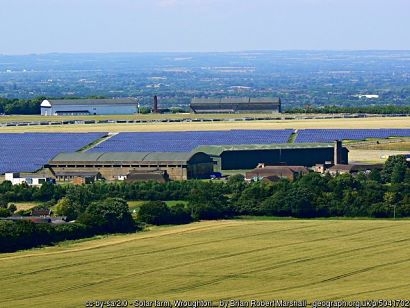
Although the surge in the energy cost is being driven solely by the rise in the price of gas, the solar sector is keen to play its part in alleviating the cost-of-living crisis.
The principle behind a voluntary plan now under discussion is to ensure that any contracts under the Renewables Obligation (RO) are tied to a new fixed-price scheme based on the successful Contracts for Difference (CfD) system. This has been put forward by the UK Energy Research Centre and has already been endorsed by wind power body RenewableUK and the energy sector’s umbrella body, Energy UK.
All want to work with the government on its design and implementation.
Under the RO, generators supplied a fixed subsidy to cover the investment cost of their older and more expensive assets. The power from them is traded on the open market. The scheme closed to new developments in 2017.
Over 2020/21, about a quarter of the UK’s entire electricity consumption was supplied by RO generators. The system helped lead to costs falling so significantly that solar is one of the very cheapest sources of power available, with new installations being subsidy-free.
Power produced under the RO is largely sold far in advance. So, the income that generators currently receive does not reflect the greatly increased price on the wholesale spot market. But as high prices look set to stay for the foreseeable future, there is a risk that consumer costs will rise further if the regime is not reformed urgently.
Potential replacement schemes would seek to ensure that costs were met while stopping consumers from being hit further by market prices determined by the most expensive source of power: natural gas. It would also tie-in to the government’s ongoing Review of Electricity Market Arrangements and improve rather than damage investor confidence – unlike calls for windfall taxes.
Such proposals would have the further benefits of slowing inflation while providing a long-term stable income for renewable generators.
Two options have been suggested. The first would retain RO payments, in return for trading in the right to sell power on the wholesale market. The second is a more complex proposal that would replace both RO payments and sales to the market with a CfD, though it could lead to deeper bill reductions in the short term.
“We have begun considering the proposals to reform support for renewable power, which we will need to be sure will function as intended to both support the sector and combat the rising cost of living” said Solar Energy UK chief executive Chris Hewett. “There is much to be worked through on the detail, but senior industry players are very supportive of the principle. Continuing to let natural gas set the price of power is not in the interests of the country. Clearly expansion of renewables such as solar is the solution to low-cost generation, energy security and reaching net zero. We are ready to discuss with new ministers as soon as they take office.”
For additional information:

